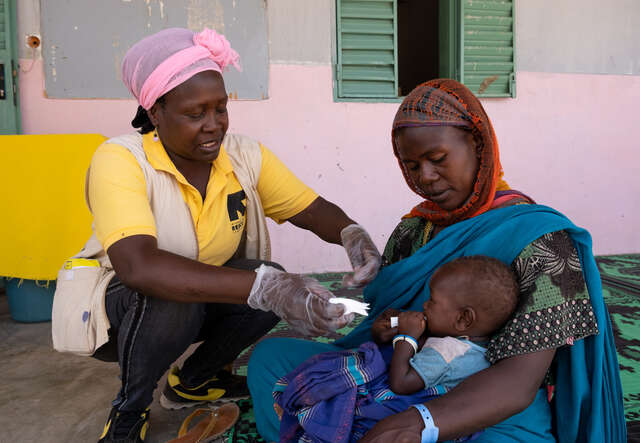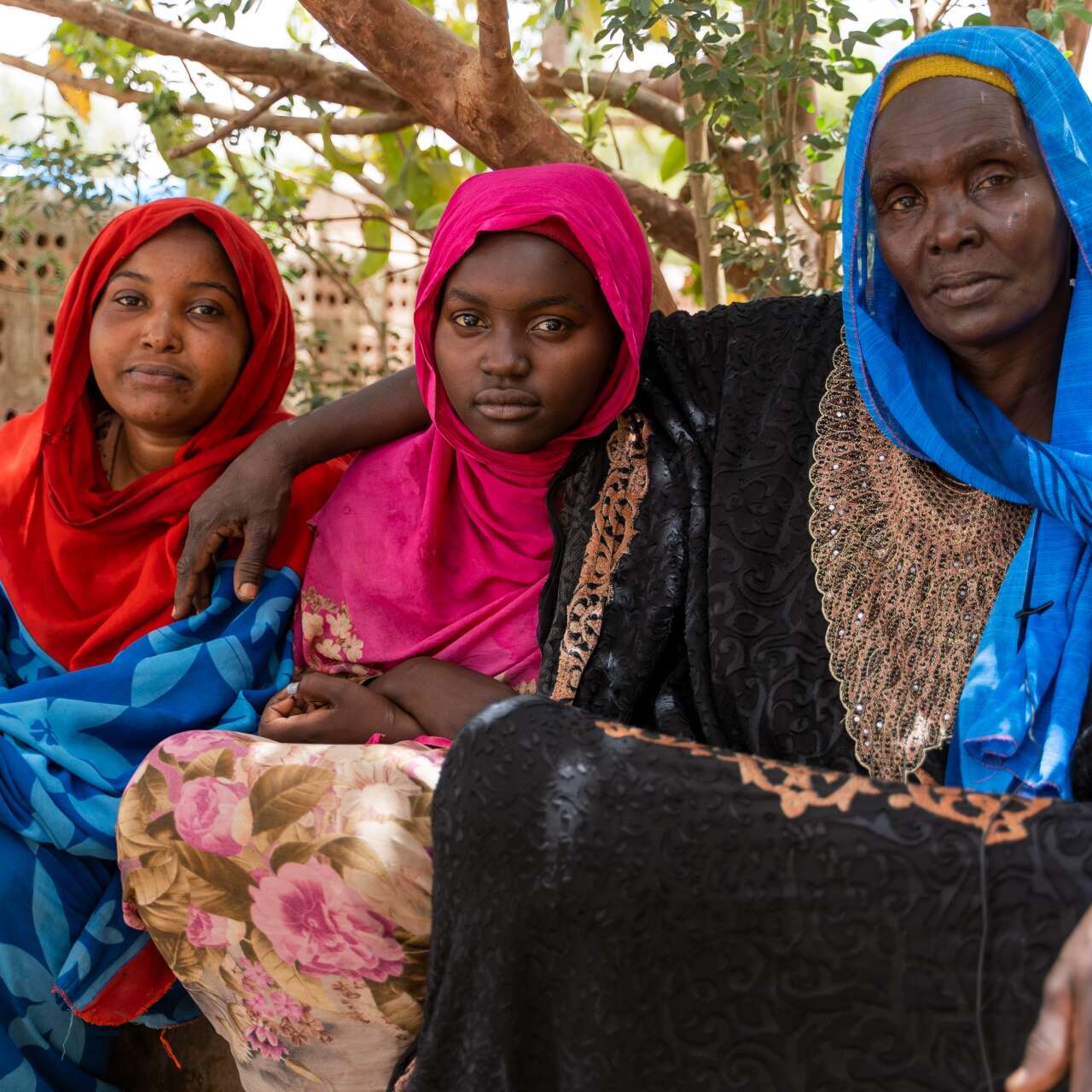
Conflict in Sudan: Over 8 million people displaced
Sudan is now the country with the largest number of displaced people and the largest child displacement crisis in the world.

Sudan is now the country with the largest number of displaced people and the largest child displacement crisis in the world.
The people of Sudan have endured the impacts of a violent conflict that began in April 2023, with violence escalating since December 15th when one of the fighting parties launched an attack on Wad Madani, a town in northern Al Jazeera State. The town had previously been largely unaffected and had provided a refuge for around half a million displaced people from Khartoum.
One year of war has caused immense suffering, leading to the displacement of more than 8 million people and the deaths of over 14,700 others. Today, Sudan is teetering on the brink of collapse—25 million people are in urgent need of humanitarian assistance—with conflict continuing to have devastating impacts on almost every aspect of day-to-day life.
Sudan is experiencing one of the worst hunger crises in the world and the likelihood of mass starvation in parts of the country is high. There are currently at least 18 million (more than 37% of the population) acutely food insecure people within the country—meaning that their lives are in danger from a lack of available, affordable food. This is 10 million more than before the start of the conflict.
The total number of people internally displaced in Sudan has surpassed 9 million, making it the largest internal displacement crisis in the world. Those most affected are children, accounting for half of the displaced population and facing severe impacts on their health and education.
Read the IRC's report on one year of conflict in Sudan
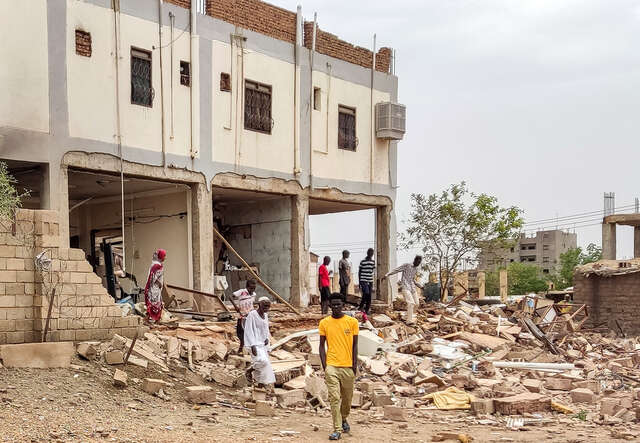
Since mid-April 2023, heavy fighting across Sudan has upended the lives of millions of children, killing more than 400. Some 14 million children are in need of lifesaving assistance, including 7.4 million children without access to safe drinking water, and 2 million children that have not received essential vaccines.
"The staggering statistic of 14 million children in Sudan—half of all children in the country—requiring humanitarian aid is a stark reminder of the urgent need for collective action,” says Shashwat Saraf, the IRC’s Regional Emergency Director in East Africa. “Every child deserves a chance to have a secure and healthy future.”
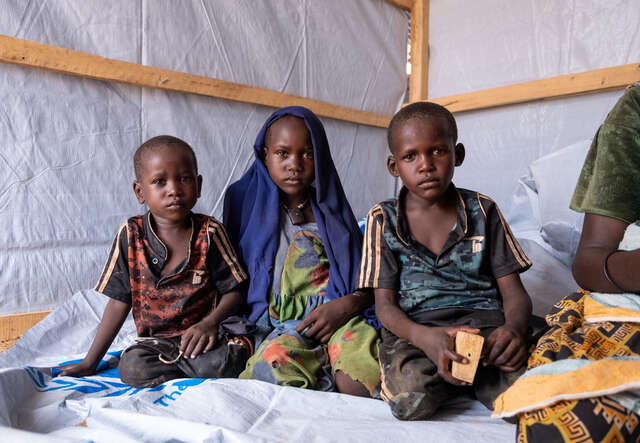
Extreme levels of food insecurity and malnutrition are affecting 18 million people in Sudan, marking it one of the worst food insecurity emergencies in the world. With high prices of food and low incomes, many families are struggling to meet their basic needs.
Moreover, inflation and the cost of living is skyrocketing, with the price of food increasing by 300% in some areas since the start of the conflict.
Approximately 4 million children under 5 are suffering from acute malnutrition and, without medical treatment, more than 700,000 children with severe acute malnutrition could die from starvation. Families displaced by conflict are finding themselves at risk of not having enough food or good nutrition.
In addition to the food and malnutrition crisis, families are also facing limited access to essential services like basic healthcare, safe and adequate water, and sanitation services. Sudan is now grappling with a severe cholera outbreak, as more than 10,000 cases and over 300 deaths have been reported across several states.
One in every three children in the country—around 19 million—have lost access to school due to increased violence and insecurity in their region. With the conflict persisting, it is predicted that no child in the country will be able to return to school in the coming months, exposing them to immediate and long-term dangers including displacement, recruitment by armed groups and sexual violence.
Learn more about how children’s educations are affected by crises.
The IRC has adapted and scaled up our programming in Sudan to address increased humanitarian needs. We are supporting people who have been displaced internally through an integrated health, nutrition and water, sanitation and hygiene (WASH) program and also provide child protection services and comprehensive women and girls’ protection and empowerment services including to gender-based violence (GBV) survivors in addition to livelihood intervention through multi-purpose cash assistance.
The IRC operates in Blue Nile, White Nile, River Nile, Gedaref and Khartoum states. We have also established a logistics hub in Port Sudan.
The IRC aims to solidify its presence in new locations, such as the Red Sea and Darfur, to address gaps in humanitarian coverage and expand our programming in response to the enduring humanitarian crisis in Sudan.
Donate today to support the IRC’s work in Sudan and in more than 50 countries around the world.
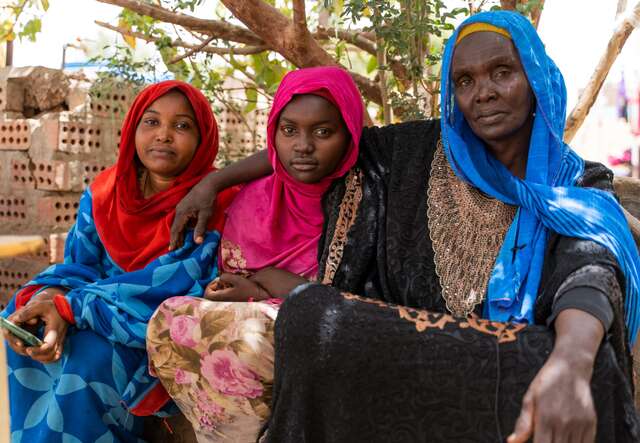
Over 1.8 million asylum seekers have sought refuge in neighboring countries since April 2023. The IRC has expanded our critical services to support Sudanese refugees, including in Chad, Ethiopia and South Sudan.
More than 500,000 have crossed the border into Chad which already hosted over 400,000 Sudanese refugees prior to the outbreak of conflict in April 2023. Ninety percent of people arriving across the borders are women and children, with one-fifth of young children experiencing acute malnutrition.
“The fact that women and children make up such a large proportion of the new arrivals in Chad is particularly worrying because they are often the most vulnerable groups in conflict situations,” explains IRC Chad Country Director, Aleksandra Roulet-Cimpric. “Women and children are at greater risk of violence, exploitation, and abuse, and they may also face difficulties accessing basic necessities such as food, water and healthcare.”
In Chad, the IRC is providing drinking water and running mobile health clinics to attend to the vast health needs of the arriving population. In addition to providing immediate relief, the IRC is working to scale up its support in the areas of water, sanitation, and hygiene (WASH), health and protection. This includes providing access to safe water and sanitation facilities, as well as promoting good hygiene practices to prevent the spread of disease.
Learn more about the IRC’s work in Chad.
People forced to flee Sudan face multiple protection risks during their flight as they seek safe pathways into South Sudan, arriving exhausted after days of travel. Upon arrival, refugees and asylum-seekers require immediate emergency assistance before onward travel to refugee camps or settlements.
The IRC's immediate focus is to provide refugees in South Sudan with health services and tackle acute protection concerns. We operate at various points of entry, including Renk, Panakuach, and Majokyinthiou, as well as in settlement locations such as Aweil West, Pariang, Rubkona, Guit, Panyijar, and Maban.
Learn more about the IRC’s work in South Sudan.
